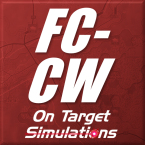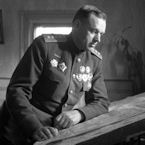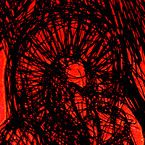TarkError
Posts: 25
Joined: 7/13/2011
From: Vancouver, BC
Status: offline

|
Hey, I wanted to provide some comments here. This is going to be a longish one, and I won't be able to completely explain everything is sufficient detail. My explanations are derived from a close reading of sources by the Soviet Army Studies Office (U.S. Army), the Soviet Studies Research Centre (RMA Sandhurst), James Sterrett's "A Report on Soviet Tactics", and personal correspondence with one of the former threat managers of the OPFOR at Fort Irwin.
quote:
Radios or not, sorry, but the OP is simply correct about Soviet doctrine. It was rigid. Whether you want it to have been or not, it was.
Rigid is not the correct word to use for describing Soviet tactics and battle drills. The more appropriate word would be "versatility". The main difference between the normal Soviet conscript and his Western counterpart is that the Soviet guy is trained to perform a smaller number of tasks and skills well. I find that most Western soldiers and officers mistake a Soviet soldier's limited skillset as "rigid" when they actually mean that he's less "versatile". A Soviet conscript wasn't trained to have the skills needed to also serve in Northern Ireland, overseas expeditionary wars, or peacekeeping operations, and that's fine.
I want to post this quote from James Sterrett's report, as I think it's perfect to describe the Soviet relationship of initiative at the low formation level:
quote:
"Probably the most enduring stereotype of the Soviet way of war is that of rigidity - attacks at all costs, orders followed slavishly, tactics by the exact diagram in the manual regardless of the situation. This is also one of the stereotypes most likely to cause heartburn - or death - in an enemy facing a Soviet-style opponent executing the doctrine properly.
Remember this: A Soviet officer is expected to display initiative. When executing a Battle Drill or a superior's order, the orders given must be altered as necessary to fit the specific situation and mission. The drills are a route to speedy communication & execution in accordance with Patton's belief that "a good plan violently executed now is better than a perfect plan executed next week".
Thus, the expectation of an officer runs in this manner: A situation arises. The officer arrives at a decision, with the help of those norms of conduct the officer believes to be applicable. The order is given as one or more battle drills, each modified as far as necessary to meet the needs of the mission. The Soviets would not consider an officer who did something stupid by following the letter of the book to have acted properly - they would consider the officer stupid."
As the quote implies, Soviet officers were certainly expected to come up with creative solutions; the main difference is that their toolbox to accomplish their tasks was more limited--at least for the company-platoon level.
quote:
In order to have a western style doctrine where junior officers and NCOs are expected to exercise their own initiative in order to acomplish a goal, they must have significant training and professionalism. We would be given an order “secure a crossing over the river”. It was up to the company commander (for example) to decide on his own, how to accomplish that. He isn’t told “move your company down this route and secure the MIKECK bridge. By encouraging junior officers to make their own determinations as to how to secure the crossing, you allow them to alter plans on the fly to adjust to the unexpected. If I show up and find bridge MIKECK is heavily defended, I can detach a platoon to feint an attack while the rest of my company secures the next bridge over.
They did not (and could not) provide their NCOs and junior officers with the training required to properly analyze a situation and alter the plan while keeping on task. Soviet junior officers and NCOs were expected to follow orders. You take bridge MIKECK. If the company commander gets there and the bridge is heavily defended, he has two choices: attack anyway or radio his senior commmader, relay the situation and request permission to attack another bridge. THAT takes time. By the time the request is routed and permission is given, the defending troops have reacted and are now defending both bridges
In this scenario, if bridge MIKECK was very, very essential to the success of the Soviet parent formation, the company commander might find his unit supported by a tank company, regimental artillery, maybe even some attack helicopters, as well as the senior commanders and staffs present to handle coordination and additional planning, so that the company commander could focus on his primary job!
More realistically, you'd see "secure a river crossing" tasks and other independent missions done by forward detachment formations, which would be led by commanders with a higher caliber of competence (see The Soviet Conduct of Tactical Maneuver: Spearhead of the Offensive by David M. Glantz for more information; that book also has examples of forward detachment actions in WW2, with quite a few involving pre-emptive attacks and seizures of river crossings; and also James F. Holcomb, "A Commander's Guide to the Soviet Forward Detachment," Military Review, December 1989).
quote:
Like it or not, the Soviet Army was a conscript Force.
So was the Bundeswehr and many NATO armies during the Cold War, but I have rarely seen comments that the West Germans had inferior troop quality and commanders because they relied on conscripts.
quote:
It’s just a fact. If you want junior officers to be able to operate with only general objectives (and not directions), you have to train them extensively. The Red army could not. Heck, I was 11B infantry 1988-1994. By the time I was an E-5 Sgt I had been through airborne school, light leader academy, platoon leaders development course and Scout/sniper school (not nearly as rigorous as today’s). That was just for an infantry Sgt in charge of a squad of 6 guys.
Soviet junior guys weren't expected to lead like their Western counterparts, although they did get extensive training. Soviet soldier and junior officer education was more along the lines of single-track specialties over a broad curriculum. (There is a more detailed explanation why but it's too long to post.) The Soviet Army didn't really develop their NCOs like Western ones--again, the Soviet military context didn't have a place for Western-style professional armies. That view began to change in around 1990 or so but that talk is outside of the context of the 1980s mechanized battlefield.
quote:
It’s not an insult...it’s just a fact that Soviet doctrine at a tactical level was rigid and company/battalion commanders were expected to follow direction. If they felt it wasn’t a good idea, they had to get new direction. American officers could take immediate action and change plans on the fly
I think there's some confusion here over what I mentioned about versatility and another thing I will introduce. There's a concept called "yedinonachaliye" (one-man command) in the Soviet command system, which means that a commander is ultimately responsible for success or failure of his unit and has absolute authority over his subordinates.
This means two things. Firstly, incompetent subordinates tasked with an independent mission facing the unexpected may choose to wait for orders rather than take a risk action, or continue with an action no longer relevant with the situation. This corresponds to your traditional descriptions of "rigidity", but this also asks a rhetorical question: what kind of commander would ask a lower-caliber commander to carry out an important independent task? More likely you'd be seeing a situation like I described earlier--the company commander with his superiors (and appropriate support assets) present at the bridge! If the battalion or regimental commander's butt is on the line if the company commander's mission fails, then he'll be on the spot to ensure success (or failure) is within his realm of control!
Secondly, yedinonachaliye gives a commander tasked with an independent mission a vast amount of leeway to exercise his skill at any level! A commander of a battalion-sized forward detachment would be expected to display a great degree of creativity and imagination in accomplishing his task, and a commander of a field army has flexibility because he can expect his subordinates to do whatever he wants them to do. I've found a common assumption amongst Western soldiers that since a Soviet commander is disallowed to do his own thing when he's someone's immediate subordinate, he is also assumed to not display independence when ordered to fight detached from his parent forces. The only limitation will be his professional competence, as Sterrett's quote will indicate.
Finally, for a good summary of Soviet battlefield agility during World War II (as role-models for the Cold War), I highly recommend Richard Armstrong's article "Battlefield Agility: The Soviet Legacy", published in the Journal of Slavic Military Studies back in 1988:
https://www.tandfonline.com/doi/abs/10.1080/13518048808429924
I also wanted to provide comments to your second post. I hope you all won't mind the length.
quote:
In The 1994 Chechnya war, this issue was evident. Russian troops failed to adapt quickly to combat conditions. NCOs and officers lacked training to carry out complex operations without upper level staff work. I’m not just making this up....The reason the Russian army is moving to a volunteer professional army is because of these deficiencies.
Context is important for understanding the Russian Army in Chechnya. Firstly, we have to understand that with the fall of the USSR and the Soviet military, the Russian military was in shambles financially, in morale, and organizationally. The Russians hadn't conducted divisional-level exercises since 1992, and the forces that went to Chechnya were a salad bowl of mixed units married together with equipment, without the time needed to train up. In retrospect, we cannot look at the Chechen War and then judge the pre-collapse Soviet Army by the Russian Army's appalling performance there. That was certainly the Russians' lowest military point since 1941, IMO. I would not expect a Western-style army afflicted with low morale, complete disorganization, a big political upheaval, and lack of a military budget to perform any better than the Russians if they went into Caucasia instead.
quote:
There is also something to be said for the general Soviet Philosophy that modern wars are so deadly that one is better off haveinh large numbers of troops instead of fewer with better Training. Same concept in armor. Why invest in Tank Recover and repair as well as large logistical capabilities and parts of Tanks are going to be destroyed by the 100’s every week? A really good tank can be destroyed by an average tank so better to have 4 average tanks than 1 good one. I’m not sure they were wrong.
The first point is true; there's really isn't a reason to make a jet fighter engine intended for long-term peacetime usage if both a MiG and F-15's wartime life will probably be the same.
But the second point is not true; the Soviets in both WWII and the Cold War had extensive logistical and repair facilities for maintaining the sustainability of their armored forces in battle. During some of the high-speed "Desert Storm"-type offensives like the Lvov–Sandomierz Operation, recovering knocked-out tanks, repairing them, and reintroducing them to battle was the primary way of sustaining combat capability during an offensive, not by feeding fresh tanks into a meat grinder.
quote:
ORIGINAL: pinwolf
Written 1984 in Charles Messenger "Armies of World War 3":
Charles Messenger, and much of what is written in English in open-source books (esp. David Isby, Viktor Suvorov, and FM 100-2-1 from 1984) was before Western subject-matter specialists had gone into the meat of Soviet source materials and understood it from the Soviet perspective, in around 1988-89-ish. In the longer term, a more sophisticated understanding of the Soviet military didn't really hit a wider audience in NATO's armies because by then, communist power had collapsed in Eastern Europe and the Soviet Union was no longer seen as a primary threat to the West!
< Message edited by TarkError -- 11/23/2018 1:26:04 AM >
|
 Printable Version
Printable Version










 This is one of those nice to have things.
This is one of those nice to have things. 


 New Messages
New Messages No New Messages
No New Messages Hot Topic w/ New Messages
Hot Topic w/ New Messages Hot Topic w/o New Messages
Hot Topic w/o New Messages Locked w/ New Messages
Locked w/ New Messages Locked w/o New Messages
Locked w/o New Messages Post New Thread
Post New Thread